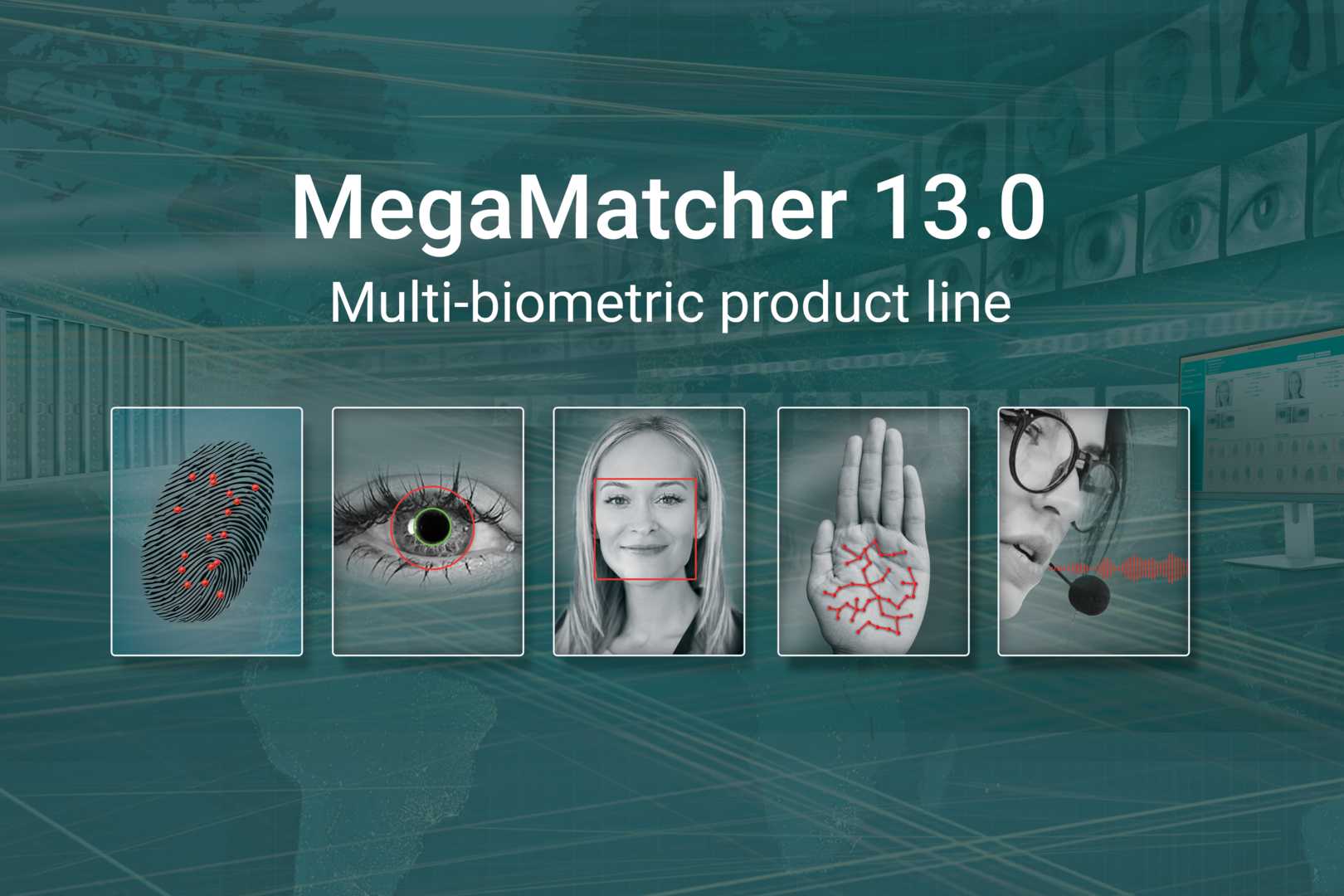MegaMatcher 13.0 includes significant performance improvements to fingerprint, face, iris and voice recognition algorithms and adds a new tattoo algorithm.
Neurotechnology, a global provider of high-precision biometric solutions, today announced the release of MegaMatcher 13.0, the latest version of the company’s flagship biometric product line. MegaMatcher provides a range of products for developing multi-biometric solutions that require high accuracy, speed and scalability. The latest release features MegaMatcher SDK, MegaMatcher Accelerator and MegaMatcher ABIS updates and improvements and adds a new tattoo algorithm that can detect, verify and identify tattoos. The MegaMatcher product line is used by organizations across a wide range of industries, including law enforcement, border control agencies, civil identification projects and commercial enterprises.
With the MegaMatcher 13.0 release, Neurotechnology presents a new set of biometric recognition algorithms that include significant improvements to accuracy and identification speed along with new algorithm enhancements and additional features. These include:
Fingerprint algorithm:
- More accurate matching of children’s with adults’ fingerprints
- Capability to estimate if a matched fingerprint is mirrored, which can be useful in criminal cases
- Improved fingerprint quality heatmap estimation
- Fingerprint quality estimation with new features added, such as fingerprint wetness/dryness
Facial recognition algorithm:
- Improved recognition of different face poses
- Enhanced face liveness detection compliant with ISO/IEC 30107-3 presentation attack detection certified by iBeta Quality Assurance
- Redesigned face capturing based on International Civil Aviation Organization (ICAO) guidelines
- Conversion of hand-drawn face composite to a realistic face image
- New face anatomy attributes, such as nose size, mouth size and eye size
Iris recognition algorithm:
- Improved iris quality estimation
- Recognition with lower-quality iris scans
- Improved iris orientation estimation
Voice recognition algorithm:
- Improved single model working on 8 kHz and 16 kHz recordings
- Significantly improved speed for matching millions voiceprints per second on MegaMatcher Accelerator
- Can be used in Text-Dependent or Text-Independent manner
New tattoo recognition algorithm:
- Provides tattoo detection, verification and identification
- Presents the ability to quickly and accurately identify different instances of the same tattoo from the same subject
“With this new set of biometric algorithms, our MegaMatcher 13.0 products offer greater accuracy and new functionality to serve the most challenging multi-biometric applications,” said Irmantas Naujikas, Director for Neurotechnology.
Neurotechnology also offers an advanced MegaMatcher Identity Registration System. The solution provides fast, accurate and reliable biometric data capturing for government organizations and commercial enterprises. This system can be customized for various application scenarios including National ID Registration, Biometric Voter Registration (BVR), Refugee Registration and more. Contact Neurotechnology to learn more about how customizable solutions can help achieve biometric data enrollment objectives.
MegaMatcher 13.0 and the entire Neurotechnology biometric product line can be purchased from Neurotechnology and through distributors worldwide. For more information, go to www.neurotechnology.com.
About Neurotechnology
Neurotechnology is a developer of high-precision algorithms and software based on deep neural networks and other AI-related technologies. The company was launched in 1990 in Vilnius, Lithuania, with the key idea of leveraging neural network capabilities for various applications, such as biometric person identification, computer vision, robotics, and artificial intelligence. Neurotechnology’s biometric algorithms have achieved top results in independent technology evaluations, including NIST MINEX, PFT, FRVT, and IREX. The company’s solutions and products have been used in more than 140 countries worldwide and in many national-scale projects for national ID, passports, elections, and border control, including India’s Aadhaar program, the Ghana General Elections, the Democratic Republic of the Congo Voter Deduplication and other projects that collectively process the biometric data of nearly 2 billion people.

















